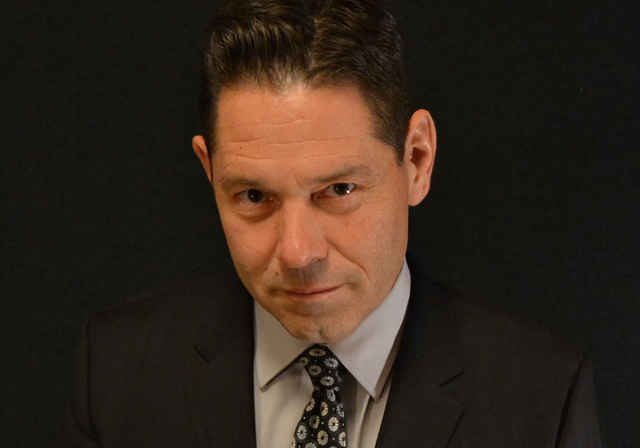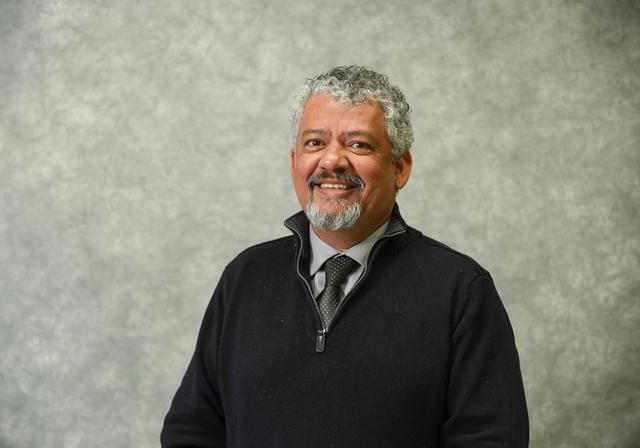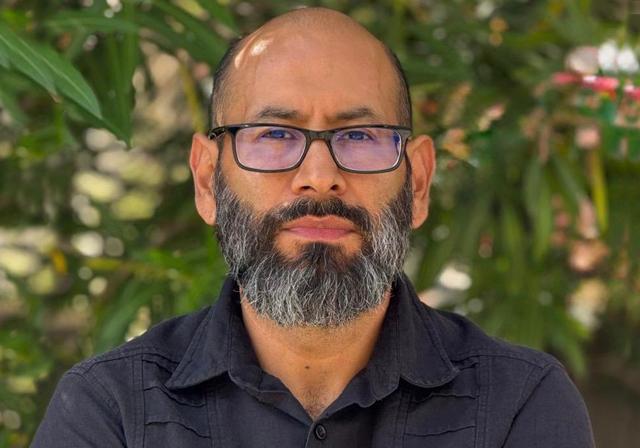Image, Imagination, Communication: Exploring the Ethical as Natural or Artificial, Real or Surreal
May 28-30, 2025 | Duquesne University Power Center Ballroom
The 18th Biennial Communication Ethics conference and the Silver Jubilee Anniversary Conference (2000-2025) of the International Communicology Institute will explore current research on the “image" and "imagination," broadly conceived, across the human sciences. Our focus is on the phenomenological, semiotic, rhetorical and ethical foundations of communication in the experience of embodied thinking, speaking and inscribing. We seek to explore the frontiers of natural and artificial sign-systems, encounter diverse manifestations of concrete reality and abstract surreality of human imagination, and discover future domains of conscious experience that found the art and practice of human communicating. We welcome a diversity of scholarly and creative approaches. Problematics that presenters may consider include, but are not limited to:
- What questions are raised by recent phenomenological, semiotic, rhetorical, and critical theories of visual and mental images, visibility and nonvisibility, presence and absence, perception and expression?
- Is there a general theory of image ethics? If so, what are its foundations and some of its value limitations (e.g., psychoanalysis, journalism, design, propaganda)?
- What does it mean to "see" oneself or another? What is a just distance from which to look?
- What social, political, economic and/or ethical contradictions have emerged with new convergences among art, media, software and the communication practices they afford?
- How is the rhetoric of visual images impacted (enhanced, limited, etc.) by networked media?
- What does artificial intelligence want from images? What do images want from AI? What constitutes personification in/of the media?
- In what ways do advertisers imagine consumers?
- What pasts, presents, and futures are depicted by the visualization of digital data?
- How can we reimagine the objectives of network and social media science?
- What histories of communicology and communication ethics have yet to be written? What futures can we imagine?
The domains of the image and imagination encompass all the Arts and Sciences of expression and perception. These include, the Arts of Media: speaking, writing, painting, printing, sculpture, performance, voice; the Sciences of Media: social and media ecology, film and video, photography, screen/digital and legacy media; and Technological Media of Artificial Intelligence: ubiquitous computing, robotics, holographics and applied algorithms. Communication ethics theory, research and application corresponds with and enriches our critical understanding of each domain.
Keynote Speakers
Featured content

Dr. David J. Gunkel
David J. Gunkel (PhD Philosophy) is an award-winning educator, researcher, and author, specializing in the philosophy of technology with a focus on the moral and legal challenges of artificial intelligence and robots. He has published over 115 scholarly articles and seventeen books, most recently Person, Thing, Robot: A Moral and Legal Ontology for the 21st Century and Beyond (MIT Press 2023), and Handbook on the Ethics of AI (Edward Elgar 2024). He currently holds the position of Presidential Research, Scholarship and Artistry Professor in the Department of Communication at Northern Illinois University (USA) and professor of applied ethics at Łazarski University in Warsaw, Poland.

Dr. Leswin Laubscher
Dr. Leswin Laubscher counts teaching, research, and clinical experience as a psychologist in both the United States and South Africa. He holds degrees from Northwestern University in Evanston, and the University of the Western Cape, South Africa. Recent research interests and publications have examined the intersection of culture and psychology, apartheid and psychology, and the importance of the philosophies of Jacques Derrida, Emmanuel Levinas, and Frantz Fanon for psychology.

Dr. Carlos Vidales
Dr. Carlos Vidales is Research Professor in the Department of Social Communication Studies at the University of Guadalajara, Mexico, and coordinator of the Semiotics, Language, and Discourse Research Group of the Mexican Association of Communication Researchers. He is the author of several books, book chapters, and articles related to semiotics and communication theory.
Conference Details
For this in-person conference, we invite participants to submit completed papers or extended abstracts of 200–500 words. We also invite panel proposals of three speakers per panel.
Please include a panel title with 250-word rationale, titles and 200-word abstracts for each presentation, and contributor contact information (institutional affiliation and email).
Submissions are due via%20email by April 30, 2025.
Wednesday May 28
9:00-9:15: Coffee and registration (Shepperson Suite)
9:15-9:25 (Ballroom A): Remarks from Associate Dean John Kern, Duquesne University McAnulty College and Graduate School of Liberal Arts
9:30–10:45: Panel 1 (Ballroom A): Reflecting Images: Personhood, Sign, Memory
Chair: Briankle G. Chang, University of Massachusetts, Amherst
“Image, Perception, and Signs of Personhood: Phenomenological Reflections on Flesh,
Experience, and the Signature of the Self”
Frank J. Macke, Mercer University
“Analogs of Huxley and Orwell in the TikTok Controversy
Thaddeus D. Martin, Modesto College
“Memory as Dialogical Attention: A Communicology Model”
Richard L. Lanigan, International Communicology Institute
11:00–12:15: Concurrent Sessions
Panel 2a (Ballroom A): Just Looking: Others, Selves, and Brands
Chair: Garnet Butchart, Duquesne University
“Oneself as Another: What Constitutes a Just Distance for Selfhood?”
Fadoua Loudiy, Slippery Rock University
“The Other of Programmatic Technologies: Bernard Stiegler and Mark Fisher on ‘What
Makes Life Worth Living’ for PR Professionals”
Robert Foschia, Kutztown University
“Personal Brands, Corporate Gains: The Role of Influencers and Celebrities in Corporate
Brand Extension”
Andrea DiBernardo, Duquesne University
Panel 2b (Ballroom B): Simulation, Technologization, and the Erosion of Sensus Communis
Chair: Erik Garrett, Duquesne University
“Postmodern Journalism and a Call from Baudrillard to Go Back to Modernity”
Andrew Connolly, Duquesne University
“The Role of Social Media: An Ethical Perspective”
Yaroub Al Obaidi, Duquesne University
“Exploring the Ethical Contradictions in Media and Film Concerning the Communication
Practices They Afford”
Gary Hughes, Duquesne University
12:30-1:30: Boxed lunches and conversation (Shepperson Suite)
1:45–3:00: Concurrent Sessions
Panel 3a (Ballroom A): Imagining Ethical Leadership Praxis
Chair: Andrew Connolly, Duquesne University
"Seeing the Servant: Visualizing Trust and Ethical Authority in Leadership Praxis"
Tricia Giannone McFadden, St. Francis University
“Ethics in the Frame: Transformational Narratives and the Construction of Leadership
Culture”
Mary Elizabeth Yancosek Gamble, Saint Francis University
“Leadership Responses to Shifting Terrain of Diversity Concerns”
Linda Coleman, Duquesne University/University of Pittsburgh
Panel 3b (Ballroom B): Undergraduate Scholars Panel
Chair: Alexander Fagin, Pennsylvania State University
“The Kiss of Betrayal: The Illusion and Misunderstanding of Communication in the Digital
Image”
Isabela Briggs, Ave Maria University
“A Catholic Understanding of Copied Sacred Images”
Anna Marie Austin, Ave Maria University
“Flora and Fauna: Imaging Beyond”
Noah Perez, Ave Maria University
“Healthy Parasocial Relationships in the 21st Century”
James W. Kavanagh, Geneva College
3:15–4:45 Keynote (Ballroom A): Carlos Vidales, University of Guadalajara, "Communication and Meaning from Cybersemiotics"
5:00–5:30 (Ballroom A): International Communicology Institute Awards Ceremony
6:00–8:00 (Ballroom C): All-conference Dinner
Thursday May 29
8:30-9:00: Coffee/Breakfast Snacks (Shepperson Suite)
9:00-10:15: Concurrent Sessions
Panel 4a (Ballroom A): Contexts of Dialogic Ethics: Friendship, Leadership, and Inter/Intrafaith Engagement
Chair: Ryan McCullough, West Liberty University
“AI Friendship as a Dialogic Unity of Contraries: Extension and Disruption”
Tiffany Petricini, Penn State Erie, The Behrend College.
“Ronald C. Arnett and Dialogic Leadership: An Authentic Encounter with the Midas Touch”
Michael R. Kearney, Dordt University
Victor Grigsby, Duquesne University
“The Icon, Ethics, and Interfaith Dialogue: Mediating Communion between East and West”
Natalia Tapsak, Duquesne University
“Lamenting Hope Within African American Hymnody”
Richard W. Wingfield, Duquesne University
Panel 4b (Ballroom B): Theorizing Identity, Ecological Thought, Visual Rhetoric, and Pan-Africanism
Chair: Georgia Bedford, Duquesne University
“How Race Matters in Communicating Social Identity”
Henry Anyabuoke, Duquesne University
“Theorizing an Ecological Communicative Ethics of the Trail: Working the Trails VI”
Janie Harden Fritz, Duquesne University
“A Triad Heritage: A Rhetorical Analysis of Pan-Africanism”
Samuel Edogbanya, Duquesne University
10:30-11:45: Concurrent Sessions
Panel 5a (Ballroom A): Ethics, Politics, and Education Today
Chair: Janie Harden Fritz, Duquesne University
“Liberty and Liberalism: American Politics and Ethics at the Point of Exhaustion”
David Impellizzeri, Regent University
“Imagining the Concrete Universal: Cosmopolitan Borders in Benhabib’s Democratic Theory”
Basak M. Guven, Duquesne University
“Crisis Rhetoric of ‘Efficiency’ in Education: A Merger—Technocrats, Oligarchs, ‘Captains of Industry,’ and the State in Late Capitalism" Georgie Bedford, Duquesne University
Panel 5b (Ballroom B): Reflections on Power, Media, and Image(s)
Chair: Andrew R. Smith, PennWest University, Edinboro
“The Digital Übermensch: The Will to Power, Master-Slave Mentality, and Living a
Life”
Andri Kosasih, Duquesne University
“McLuhan, the Narcissus Myth, and AI”
Jennifer Spiegel, Duquesne University
“The Image of the Inevitable”
Justin Bonanno, Ave Maria University
“Dissecting the Impact of YouTube 20 Years Later”
Fr. Lazarus Langbiir, Duquesne University
12:00–1:30: Luncheon Keynote (Ballroom C): David Gunkel, Northern Illinois University, "Person, Thing, Robot: A Moral and Legal Ontology for the 21st Century and Beyond"
1:45–3:00: Panel 6 (Ballroom A): Phenomenology and Dialogue: Application and Reconstruction
Chair: Briankle G. Chang, University of Massachusetts, Amherst
“Application of Merleau-Ponty’s Philosophy in a Phenomenological Nursing Study of
Patients, Family Members, and Nurses During Critical Illness in the Intensive Care
Unit”
Brigitte S. Cypress, Rutgers University
“Dialogue, Dissemination, and Semiosis: Toward a Pragmatic Reconstruction”
Vincent Colapietro, Liberal Arts Professor Emeritus, Penn State University, Center
for the Humanities, University of Rhode Island
3:15-4:45: Panel 7 (Ballroom A): Ethics of the Real
Chair: Fr. Lazarus Langbiir, Duquesne University
“Ethics of Asserting the Real: Production Artifacts and the Uncanny Valley in Artificial
Images
Michael Grabowski, Manhattan University
“Reality, Imagination, Research, and Communication: An Epistemological Synthesis of
Karl Popper’s Three Worlds and the Methodological Issues in Research”
Qinjiang Yao, Lamar University
“Re-imagining Money: Bitcoin and the 21st Century”
Rachel Kaplan, Seton Hill University
5:00–6:15: Panel 8 (Ballroom A): Contributions of Thomas Pace to Research and Pedagogy in Communicology
Chair: Richard L. Lanigan, International Communicology Institute
“Thomas Pace and the Recovery of the Human in Communication”
Isaac E. Catt, Visiting Scholar, Duquesne University
“Seeding the Existential Soil of Scholarship”
Jacqueline M. Martinez, Arizona State University
“The Flesh of Speech and the Experience of Communication in the Life and Voice of
Tom Pace”
Frank J. Macke, Mercer University
"Speech as Human Science and Rhetorical Art"
Andrew R. Smith, PennWest University, Edinboro
“Cyphers of Existenz in the Legacy of Thomas J. Pace”
Thaddeus D. Martin, Modesto College
“Tom Pace as an Event of Speaking: Discovering with Tom that the Map is Not the Territory”
Deborah Eicher-Catt, Professor Emerita of Communication Arts and Sciences, Liberal
Arts Teaching Fellow, The Pennsylvania State University
Dinner on your own
Friday May 30
8:30-9:15: Coffee, breakfast snacks, and conversation (Shepperson Suite)
9:15-10:30: Panel 9 (Ballroom B): Ethical Praxis in Educational Contexts
Chair: Basak Guven, Duquesne University
“Who Knows? Teaching Response-Ability as Epistemological Discernment in GenAI-Assisted
Business Communication”
Beth Walter, Carnegie Mellon University
“Artificial Intelligence and Higher Education: Destabilized Images, Roles, and Ethics”
Ryan McCullough, West Liberty University
“The Improvisational Classroom: Embodied Pedagogical Praxis”
Anthony Luchini, Duquesne University
10:45-12:00 Panel 10 (Ballroom B): The Human Image in Helmuth Plessner, Pierre Bourdieu, and Psychocentric Culture
Chair: Richard L. Lanigan, International Communicology Institute
“The Human Image Reimagined”
Igor Klyukanov, Eastern Washington University
“Toward a ‘New Logic of Embodied Mind:’ A Commentary on Isaac Catt’s The Human Image
in Helmuth Plessner, Pierre Bourdieu, and Psychocentric Culture”
Jacqueline M. Martinez, Arizona State University
“Communicability and Faith in The Human Image in Helmuth Plessner, Pierre Bourdieu,
and Psychocentric Culture “
Thaddeus D. Martin, Modesto College
“Reflections on the Human Imago and How We Semiotically Invent Our Reflections in
and Through It”
Frank J. Macke, Mercer University
Respondent: Isaac E. Catt, Visiting Scholar, Duquesne University
12:15-1:45: Luncheon Keynote (Ballroom C): Leswin Laubscher, Duquesne University, "Some Stories about Soulful Seeing. Or Not."
2:00-4:45: Panel 11 (Ballroom B): The Ethics of Diaspora Imagined and Lived: Film and Discussion
Part 1 (2:00-3:15): Screening of Round Eyes in the Middle Kingdom
Introduction: Richard L. Lanigan, Program Chair, International Communicology Institute
Film Précis: “Ronald Levaco, Growing Up in China”
Film Screening (1995; 53 minutes)
Part 2 (3:30-4:45): Diaspora Images and Imagination
Round Table Discussion: Living Through Multi-Lingual Diasporas-in-Contact
Chair: Richard L. Lanigan, International Communicology Institute
Richard L. Lanigan, International Communicology Institute: Growing Up in New Mexico
Michael Shapiro, Brown University: Growing Up in Japan
Igor Klyukanov, Eastern Washington University: Growing Up in Russia
Briankle G. Chang, University of Massachusetts, Amherst: Growing up in Taiwan
Conference Closing Remarks
Registration fee includes coffee all day, reception (hors d'oeuvre and wine), lunches, Friday breakfast buffet.
Faculty: $200
Graduate student: $65
Duquesne undergraduate: $0
Pittsburgh International Airport has direct international flights from London, UK
and easy connecting flights via major US cities. The airport is 18 miles, approximately
20 minutes, to Duquesne University.
A ride sharing service such as Uber is the fastest way to get from the airport to
Duquesne University. Hail a ride with your smartphone app and meet your driver outside
Baggage Claim Door #4 at the Arrivals Curb.
If you plan to use public transportation, the Port Authority bus 28X Airport Flyer stops downtown at Liberty Avenue at Wood Street. It will take approximately 15 minutes to walk to campus from there.
Please review our Duquesne University Campus Map to find your way to the Power Center Ballroom, where the conference will take place.
Parking is available at Duquesne's Forbes Garage, 1180 Forbes Avenue, for $20/day. After you have parked, walk to the Skywalk from the 8th floor of the elevator to the Power Center, crossing over Forbes Avenue below. Off campus parking is also available.
Nearest walkable (10-15 minutes)
Marriott City Center
112 Washington Pl, Pittsburgh, PA 15219
(412) 471-4000
View reduced rate rooms
Cambria Hotel
1320 Centre Ave, Pittsburgh, PA 15219
(412) 381-6687
Double Tree by Hilton
One Bigelow Sq, Pittsburgh, PA 15219
(412) 281-5800
Also walkable
Omni William Penn
530 William Penn Pl, Pittsburgh, PA 15219
(412) 281-7100
Embassy Suites
535 Smithfield St, Pittsburgh, PA 15222
(412) 338-2200
Hilton Garden Inn
250 Forbes Ave, Pittsburgh, PA 15222.
(412) 683-2040
Kimpton Hotel Monaco
620 William Penn Pl, Pittsburgh, PA 15219
(412) 471-1170
Located in the heart of Pittsburgh, Pennsylvania, USA, Duquesne University is a vibrant, private institution known for its commitment to academic excellence and social justice. Duquesne University is home to the Simon Silverman Phenomenology Center, a hub for phenomenological research and scholarship, with extensive collections including the archives of prominent phenomenologists.


